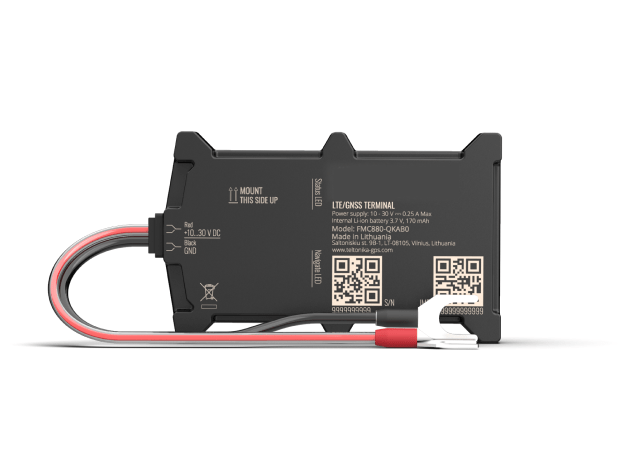In the world of vehicle tracking and diagnostics, two prominent technologies dominate: OBD (On-Board Diagnostics) trackers and battery trackers. Both of these devices serve pivotal roles in fleet management, vehicle maintenance, and personal car monitoring. However, they offer distinct features and benefits that cater to different needs. Understanding the differences between OBD and battery trackers can help you make an informed decision on which device is best suited for your requirements.
What is an OBD Tracker?
Definition and Functionality
An OBD tracker is a compact device that plugs into a vehicle’s OBD-II port, which is typically located under the dashboard. The OBD-II port has been standard in cars and light trucks since 1996 in the United States and other parts of the world. These trackers continuously communicate with the vehicle’s onboard computer systems to provide real-time data about the vehicle’s performance, location, and health. This seamless integration with the car’s internal systems allows for a comprehensive overview of various vehicle parameters.
By leveraging the OBD-II interface, these trackers can access a plethora of data points including fuel efficiency, engine temperature, and emissions status. This makes them incredibly useful for diagnosing problems before they escalate into costly repairs. Their real-time data reporting capabilities also make OBD trackers invaluable tools for fleet managers who need to monitor the health and performance of multiple vehicles simultaneously.
Moreover, the ease of use and plug-and-play nature of OBD trackers make them accessible for everyday drivers. Whether you’re a parent wanting to keep an eye on your teen’s driving habits or an individual looking to maintain your car’s health, an OBD tracker provides valuable insights with minimal hassle.
Key Features
- Vehicle Diagnostics: OBD trackers can read and report diagnostic trouble codes (DTCs), which helps in identifying issues with the engine, transmission, and other critical systems. This feature alone can save you time and money by pinpointing problems before they become severe.
- GPS Tracking: Most OBD trackers come with built-in GPS modules that provide real-time location tracking. This is useful not only for personal vehicle tracking but also for fleet management.
- Driving Behaviour Monitoring: These trackers can analyze driving patterns, including speed, acceleration, braking, and idling, which is useful for both personal use and fleet management. This data can help in promoting safer driving habits and reducing the risk of accidents.
- Easy Installation: Simply plug the tracker into the OBD-II port without the need for professional installation. This makes it convenient for those who want a quick and hassle-free setup.
- Remote Data Access: Data collected by OBD trackers can be accessed remotely via smartphone apps or web platforms. This feature allows for real-time monitoring and alerts, even when you’re not physically near the vehicle.
What is a Battery Tracker?
Definition and Functionality
A battery tracker, also known as a hardwired GPS tracker, is installed directly into a vehicle’s electrical system. These trackers are typically connected to the vehicle’s battery but can also draw power from other sources within the vehicle. Known for their reliability and durability, battery trackers are suitable for a wide range of applications, from personal vehicles to large commercial fleets.
Battery trackers offer a robust solution for long-term vehicle tracking needs. Unlike OBD trackers, which can be easily removed, battery trackers are installed in hidden locations within the vehicle. This makes them less susceptible to tampering and more reliable for security purposes. Their connection to the vehicle’s electrical system ensures a consistent power supply, making them ideal for long-term use.
Furthermore, battery trackers often come with advanced features such as geofencing and tamper alerts. These features add an extra layer of security by notifying the user of any unauthorised movements or tampering attempts. This makes battery trackers an excellent choice for high-value vehicles or assets that require constant monitoring.
Key Features
- Consistent Power Supply: Since they are hardwired, battery trackers draw power directly from the vehicle’s battery, ensuring continuous operation. This makes them more reliable for long-term tracking compared to devices that rely on a rechargeable battery.
- Real-Time GPS Tracking: Like OBD trackers, battery trackers provide real-time location data. This is essential for both personal and commercial use, offering peace of mind and operational efficiency.
- Geofencing: Battery trackers often support geofencing, allowing users to set virtual boundaries and receive alerts when the vehicle enters or exits these areas. This feature is particularly useful for fleet managers and parents monitoring teen drivers.
- Tamper Alerts: These devices can detect tampering attempts and send immediate alerts to the owner or fleet manager. This adds an extra layer of security, making it difficult for thieves to disable the tracker.
- Versatile Installation: Battery trackers can be installed in various locations within the vehicle, making them hard to detect and tamper with. This versatility in installation options enhances their security features.
Comparison: OBD Trackers vs Battery Trackers
Installation
- OBD Trackers: Installation is straightforward and doesn’t require any technical expertise. Simply plug the device into the OBD-II port. This ease of installation makes OBD trackers accessible for everyday users who may not have technical skills.
- Battery Trackers: Installation is more complex and usually requires professional assistance to connect the tracker to the vehicle’s electrical system. This ensures that the device is properly integrated and less likely to be tampered with, but it also adds to the initial setup cost.
Power Source
- OBD Trackers: Powered directly through the OBD-II port, which means they rely on the vehicle’s battery and may drain it if left connected for extended periods without the engine running. This can be a disadvantage for vehicles that are not used frequently.
- Battery Trackers: Hardwired to the vehicle’s battery, providing a consistent power supply. Some models come with backup batteries to ensure operation even if the main battery is disconnected. This makes them more reliable for long-term tracking needs.
Data and Functionality
- OBD Trackers: Offer comprehensive diagnostic data and driving behavior analytics, making them ideal for monitoring vehicle health and performance. This makes them suitable for users who need detailed insights into their vehicle’s condition.
- Battery Trackers: Primarily focused on location tracking and security features such as geofencing and tamper alerts. They may not provide detailed diagnostic information, making them more suitable for security-focused applications.
Use Cases
- OBD Trackers: Suitable for individual car owners who want to monitor their vehicle’s health, small businesses managing a few vehicles, and parents tracking their teen drivers. Their ease of installation and diagnostic capabilities make them versatile for various applications.
- Battery Trackers: Ideal for large fleets, rental car companies, and vehicles that may be at higher risk of theft, such as luxury cars or heavy machinery. Their robust security features and consistent power supply make them perfect for high-value assets.
Advantages and Disadvantages
OBD Trackers
Advantages:
- Easy to install and remove.
- Provides detailed diagnostic data.
- Monitors driving behavior.
Disadvantages:
- Easily accessible and removable, which could be a security concern.
- May drain the vehicle’s battery if not used properly.
Battery Trackers
Advantages:
- Hard to tamper with due to hidden installation.
- Reliable power supply.
- Suitable for high-risk vehicles.
Disadvantages:
- Requires professional installation.
- Limited diagnostic capabilities compared to OBD trackers.
Conclusion
Both OBD and battery trackers offer valuable features for vehicle tracking and management, but they cater to different needs and preferences. OBD trackers are ideal for those who prioritize easy installation, diagnostic data, and driving behavior monitoring. On the other hand, battery trackers are better suited for users who need robust security features, consistent power supply, and tamper resistance.
Ultimately, the choice between an OBD tracker and a battery tracker depends on your specific requirements, whether it’s for personal use or managing a fleet of vehicles. By understanding the unique advantages and limitations of each type, you can make a well-informed decision that best meets your needs.













